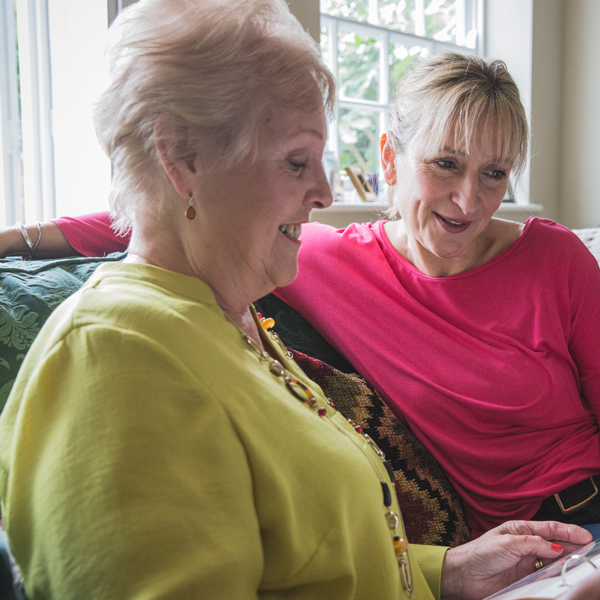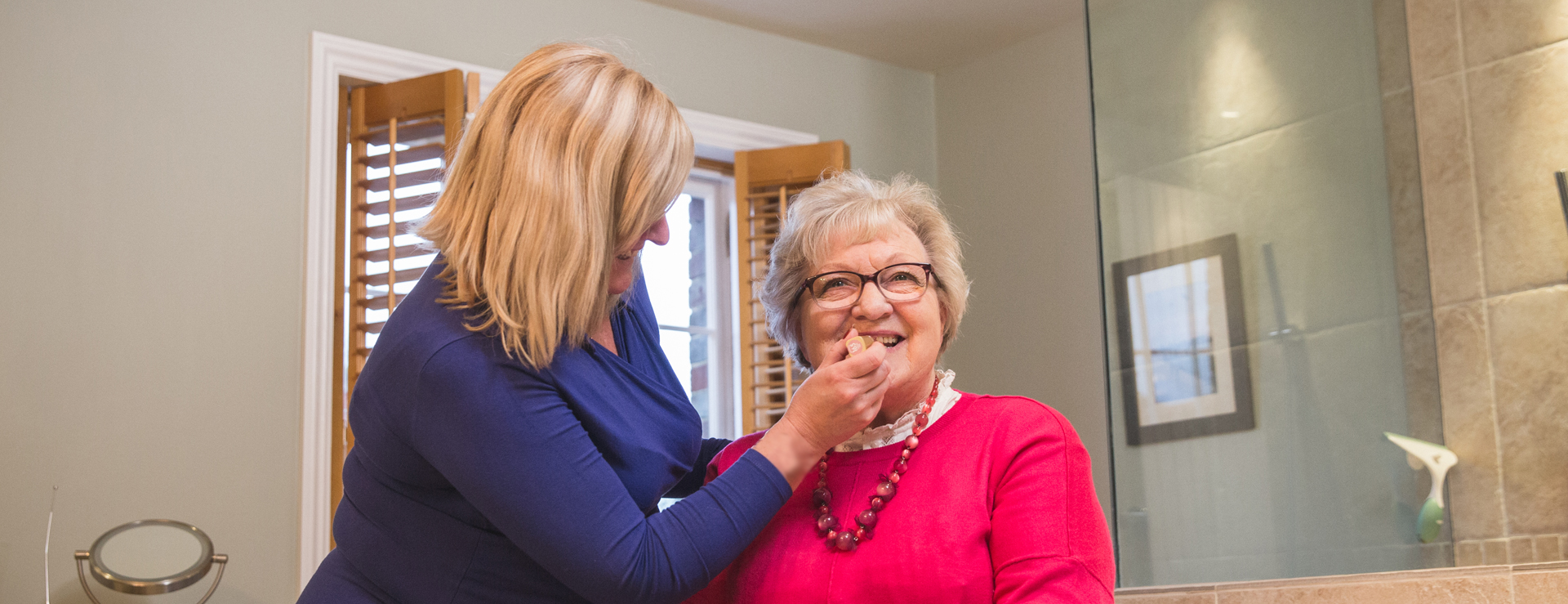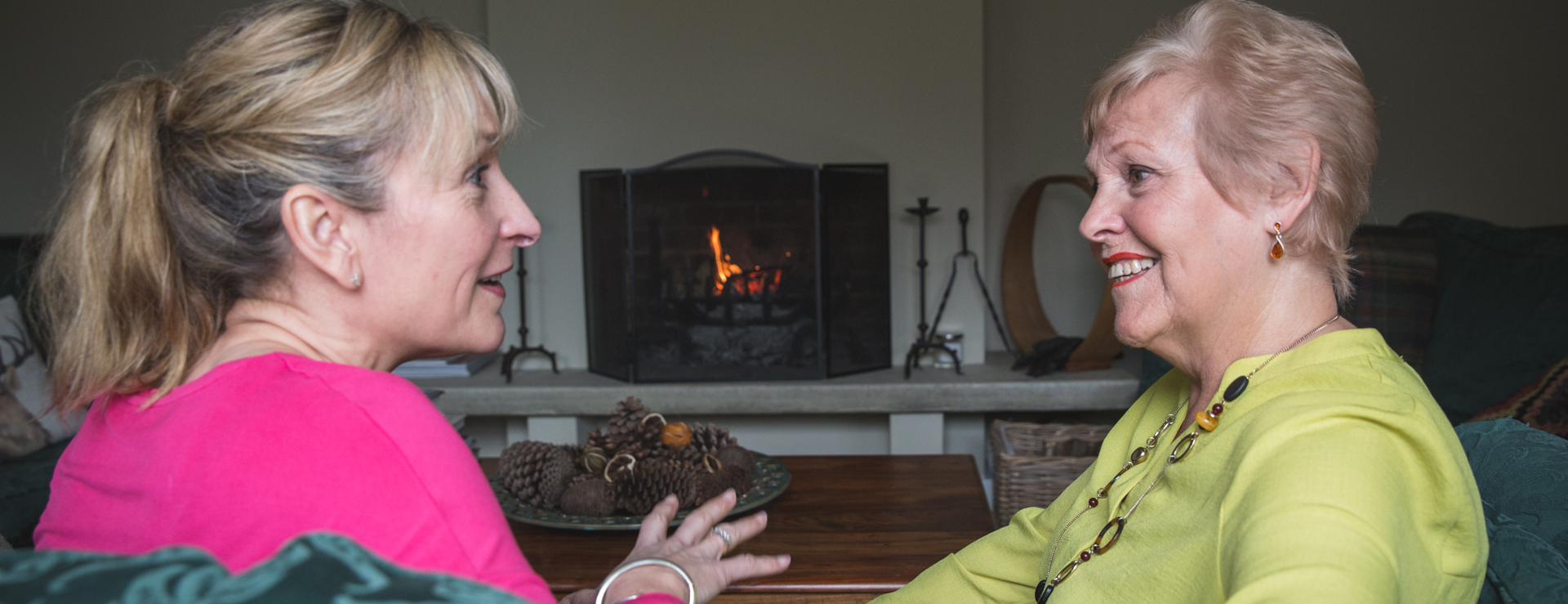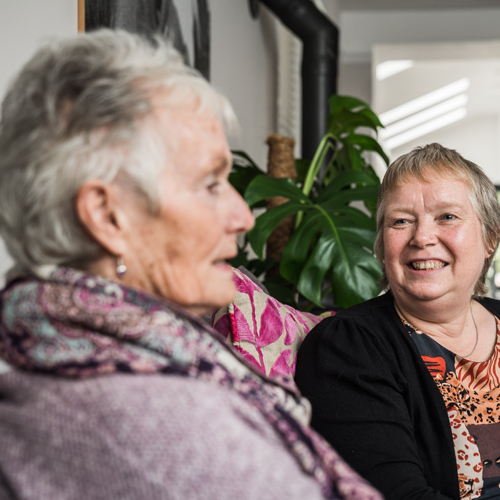Agitation, a distressing symptom commonly experienced by people living with dementia, can cause stress for both the person affected and their caregivers. But with the right person-centred approach and calming strategies, it’s possible to create a soothing environment that promotes a sense of calm and well-being. Drawing inspiration from our experienced caregivers and experts in the field, we’ve compiled a list of 10 proven methods to address agitation in people living with dementia. Each approach is tailored to provide a compassionate and person-centred approach, recognising the unique needs and challenges faced by those living with dementia. 1. Stay calm It can be upsetting when a loved one is feeling agitated or stressed and we can’t seem to meet or understand
Read more
Palliative care is a type of care that supports anyone living with a terminal illness or complex condition. It addresses the physical, emotional and spiritual needs of the individual and their family and aims to alleviate symptoms such as pain, nausea, and fatigue. It can be provided in various settings, including hospitals, hospices and the individual’s own home. Palliative care is often confused with hospice care, which is a form of palliative care provided to people who have a life expectancy of six months or less. However, palliative care is not limited to end-of-life care and can be provided to individuals at any stage of their illness. Some people begin palliative care when they are first diagnosed, while others wait
Read more
What is person-centred care? Person-centred care is an approach to healthcare that focuses on the needs and preferences of the individual receiving care. It recognizes that each person is unique, with their own set of values, beliefs, and experiences, and seeks to tailor care to meet their specific needs. Person-centred involves a collaborative approach between healthcare providers and the individual receiving care, as well as their family or caregivers where appropriate. It places a strong emphasis on communication, listening, and empathy, with the aim of building a strong, trusting relationship between the provider and the person receiving care. Person-centred care is a guiding principle of the NHS and it has made efforts to implement person-centred care into its policies and
Read more
As people are now living longer than ever, the number of people with dementia is on the rise. It is estimated that there are currently 850,000 people living with dementia in the UK alone, and this number is only expected to increase in the coming years. Dementia is not a disease itself. The term dementia is an umbrella term for a variety of conditions that cause a decline in cognitive function. People will experience their symptoms differently, but there are some common early warning signs of dementia everyone should be aware of. By recognising the early symptoms of dementia and obtaining a diagnosis, you can be assured that dementia treatment is arranged in good time and a plan created for the future
Read more
Some people living with Alzimieher’s disease and other types of dementia experience difficulties in the late afternoon or early evening. This is known as ‘sundowning’ and it can lead to distressing symptoms such as agitation or confusion. Sundowning may continue into the night making it difficult for people with dementia to fall asleep or stay in bed. The behaviours associated with sundowning can happen at any stage of dementia but are more common during the middle and later stages. At Oxford Aunts, we understand how upsetting it can be when a loved one with dementia experiences sundowning. We support many families in Oxfordshire and its surrounding counties to manage this situation with our high-quality live-in care service for those who need dementia
Read more
If you are considering live-in care for the first time, you may have questions such as “what do carers do?” and “is a live-in carer right for me?”. Here we provide guidance on what you can expect from a live-in carer so that you and your family can make an informed decision. What is live-in care? Live-in care is when a professional and fully-trained carer moves into your home with you to provide you with the one-to-one support you need to continue living independently. The care provided will be tailored to your specific needs to ensure you can continue living happily and safely in the comfort of your own home. This dedicated care can be provided to an individual or
Read more
Domiciliary care is a type of visiting home care that provides assistance to people who need extra support to remain independent. A domiciliary carer will visit clients directly at home to provide one-to-one support with daily tasks, personal care, medication, administration and other activities that enable them to continue living with freedom and choice. Domiciliary care is the ideal option for anyone who may prefer not to move out of their home permanently. It can be short-term or permanent depending on the individual’s needs. We will match you with an experienced and dedicated domiciliary who is skillfully trained and chosen to match your personality and interests. At Oxford Aunts, we are expanding our established live-in care service to offer flexible domiciliary care
Read more
A MAR chart is a working document used to keep track of all the medications a person takes. By keeping clear, accurate and up-to-date records, a live in carer can help keep your loved ones safe. When a carer administers medication, it’s important that everything is recorded correctly. Keeping a close eye on all medication taken is vital for preventing unpleasant side effects, dangerous medication interactions or overmedication. What is a MAR chart? A medication administration record (MAR) chart – sometimes referred to as a MAR sheet – is a printed or electronic chart used to record the administration of medicines. In order to be effective and accurate, all the medications a person takes must be included; whether they are
Read more
An advocate is someone who can provide valuable assistance in navigating the complex landscape of health and social care. By listening to your concerns and providing information, advocates empower people to make informed decisions and ensure their interests are best represented. Here we explore what it means to be an advocate and how they can help you or someone you care for. What is advocacy? Advocacy is a free service provided to people who require extra support in navigating the complex world of health and social care. Advocates are independent, meaning they do not work for the council, the NHS or care providers. Instead, their role is to provide people with the support they need to make informed decisions about
Read more
When providing care to vulnerable people, there is nothing more important than treating them with respect and dignity. Dignity is recognising the value of each person as an individual and treating them with empathy, compassion and respect at all times. At Oxford Aunts, dignity and respect are at the heart of our live in care services. Since 1967, we have proudly cared for thousands of people enabling them to stay safely and happily in the comfort of their own homes whilst receiving the care they need. The care we provide is person-centred and highly personalised to ensure our clients can live well in any way they wish. Our compassionate and experienced carers are focused on providing care that promotes choice and
Read more













